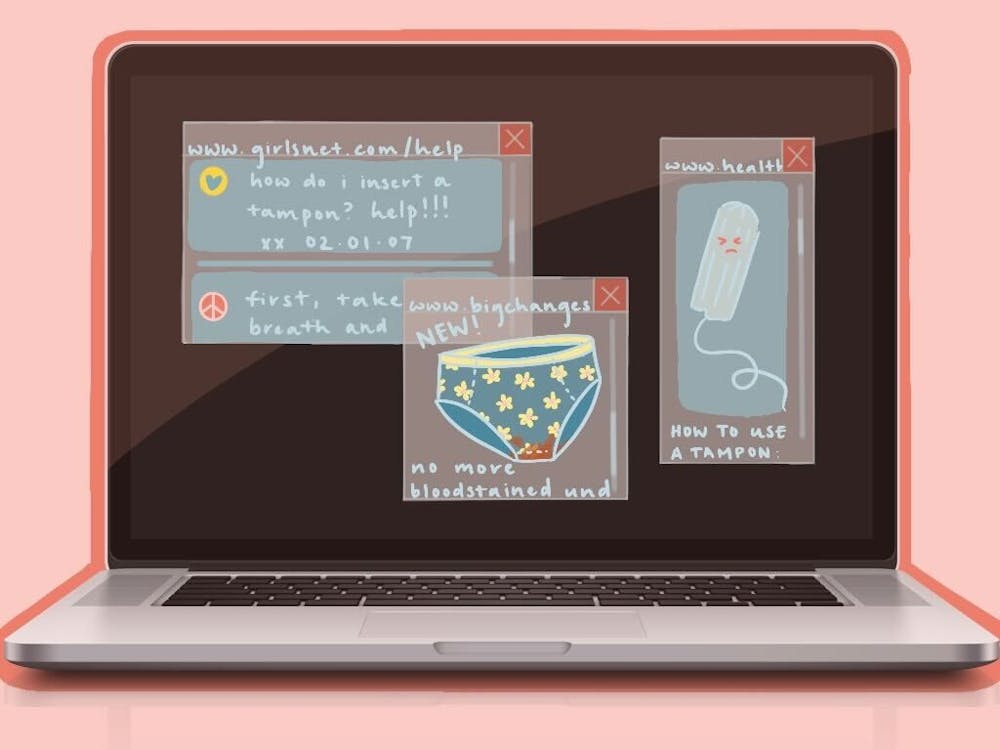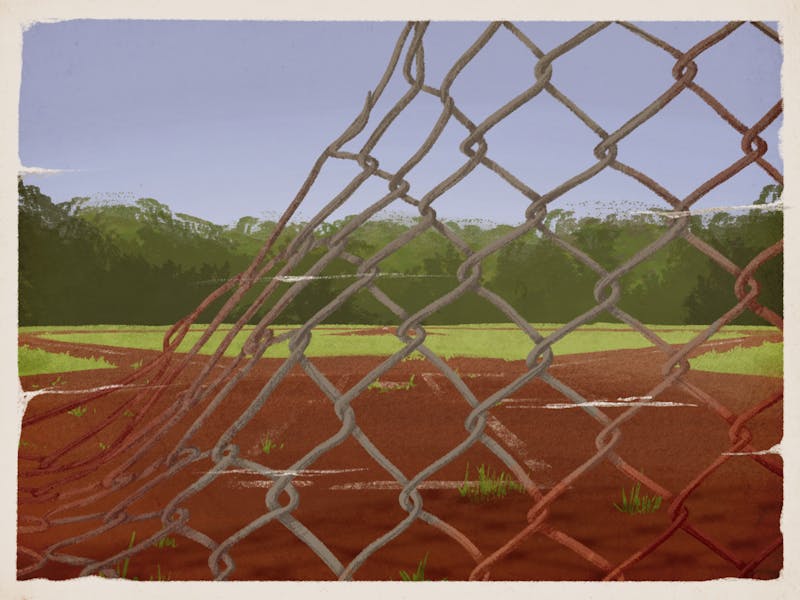The first time I’m scared of myself, I’m twelve in a bathroom in Virginia.
Dread sinking deep at the sight of blood,
sickly purple in the fluorescent light of the basement. Too shocked to cry,
I can’t meet my own eyes in the mirror, can’t muster up the courage to leave,
can’t let anyone know.
Years later, I’ll tell my sister it was then, it was that day,
when only she could talk me down from the oak in our uncle’s yard.
We’ll be drunk swapping stories in the kitchen, well past midnight.
We’ll say sorry I wasn’t there when I could have been without saying it.
We’ll say it wasn’t your fault without saying it.
But here I am at the sink, clammy and shaking, mid-July,
thinking that all as it has been, is over now, and no one can know.
And surely no one does. Surely no one has mourned as I mourn now—
I don’t want this. I don’t want this. I do not want this.
I don’t know who this person is.
This day was waiting for me as a death—in my home,
not a celebration of life but a private grief.
You go in blind, no guidebook.
You keep the gritty details to yourself
for the comfort of others, at the cost of your own.
It wasn’t your fault.
And the nightmare doesn’t end there. It follows
the 200 miles home, follows through time.
Growing is a trauma like grief—it thrives in silence.
And I waste years being as quiet as possible,
as agreeable as possible, as proper as I can.
If I could talk to her, I’d tell her to fuck it all.
Tell your mother you’re weary. Tell your sisters I’m here.
We waste years.
The shame wastes us.
But slowly, it gets better. Still, it gets better.
I talk about the pain to bask in the relief of living in its absence at last.
I talk about the regret of my silence
so at least someone’s baby sister grows up amongst this ruckus:
You’re okay. You’re okay. You’re okay.
And she’s not scared once.



